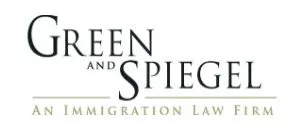Canada's vibrant landscape of international conferences and events attracts professionals, academics, and innovators from around the globe. From bustling cities like Toronto and Vancouver to the charm of Montreal and Calgary, Canada offers a diverse array of venues for international conferences, such as the Buildings Show, Collision, DX3, and many others.
However, for guests traveling from overseas, navigating Canadian immigration requirements can appear daunting. Below, we will explore relevant considerations and essential steps for international guests to successfully travel to Canada and be authorized entry at the border to attend conferences.
Why attend a conference in Canada?
Diverse and Inclusive Environment
Canada's commitment to diversity and inclusivity makes it an attractive destination for international conferences. With a multicultural population, Canada fosters an environment where attendees from diverse backgrounds feel welcome and respected. This inclusivity enhances networking opportunities, encourages cross-cultural exchange, and enriches the conference experience for participants.
World-Class Infrastructure and Facilities
Canada boasts world-class infrastructure and facilities, making it well-equipped to host large-scale international conferences. From state-of-the-art convention centers to modern transportation networks and high-quality accommodation options, Canada offers everything needed to ensure the smooth execution of conferences. Accessible transportation, advanced technology infrastructure, and a range of accommodation choices contribute to the convenience of conference attendees.
Leading Expertise and Innovation
Canada is home to leading experts and innovators across various fields, making it an ideal destination for conferences focused on cutting-edge research, industry trends, and innovation. Attendees are provided an opportunity to engage with renowned scholars, industry professionals, and thought leaders who contribute to Canada's vibrant intellectual landscape. The exchange of ideas and collaboration facilitated by these conferences can lead to valuable connections and groundbreaking partnerships.
What type of immigration authorization is required to attend?
The first step for international guests planning to attend conferences in Canada is to determine if they are eligible to enter Canada as a business visitor or if they will require work authorization, such as a work permit. In most cases, entry as a business visitor will be the appropriate category.
The second step is to identify the appropriate visa or travel authorization required to travel to Canada. Depending on the guest's citizenship(s) and the nature of their stay, they may require a Temporary Resident Visa (TRV), an Electronic Travel Authorization (eTA), or in the case of citizens of the United States and lawful permanent residents of the U.S., neither is required as they are TRV and eTA exempt. Please note that a TRV is also commonly referred to as a “visitor visa”.
Step 1: Find out if you are a business visitor
Conference guests usually will not require a work permit and will be able to enter Canada as business visitors. Generally, business visitors are foreign nationals who stay in Canada for short periods of time to attend meetings or an event, such as a conference, and do not enter Canada's labour market. To qualify as a business visitor to Canada, you must show that:
- you plan to stay for a short duration (typically, less than 6 months);
- you do not plan to enter the Canadian labour market;
- your main place of business and source of income and profits is outside Canada;
- you have documents that support the purpose of your trip; and
- you meet Canada's basic entry requirement, as you:
- have a valid travel document, such as a passport;
- have sufficient funds to support your stay and to return home;
- plan to leave Canada at the end of your visit; and
- are not inadmissible due to a criminal offence, security or health risk to Canadians.
There are some circumstances where conference guests may be seen as entering Canada's labour market, however, the Canadian government has carved out exceptions for certain activities and allows the entry of these more active participants as visitors without the need for work authorization. Some common examples of more active participation which is authorized as a business visit or as a foreign national who may work in Canada without a work permit, include the following:
- guest speakers for the sole purpose of making a speech or delivering a paper at a dinner, graduation, convention or similar function, or as a commercial speaker or seminar leader delivering a seminar that lasts no longer than five days;
- members of the executive of a committee that is organizing a convention or meeting in Canada or as a member of the administrative support staff of such a committee;
- foreign nationals representing a foreign business or government for the purpose of selling goods for that business or government, if the foreign national is not engaged in making sales to the general public in Canada; and
- employees of foreign news companies for the purposes of reporting on events in Canada.
Step 2: Find out if you need a visa or an electronic travel authorization (eTA) to travel to Canada
If you qualify as a business visitor or person authorized to work without a work permit, the next step is to determine what type of authorization you require to travel to Canada.
Electronic Travel Authorization (eTA)
Visa-exempt foreign nationals need an eTA to fly to or transit through a Canadian airport. You can check here to see if you are visa-exempt. These travellers do not need an eTA when arriving by car, bus, train or boat because it is only required for air travel.
Please note that U.S. citizens are the only visa-exempt country that is exempt from the eTA requirement. In addition, lawful permanent residents of the U.S., which are persons who have been granted the right to permanently reside in the United States, are exempt from the eTA requirement.
Temporary Resident Visa (TRV)
If you are a citizen of a country that requires a visa to travel to Canada, you will need to apply for a Temporary Resident Visa (TRV). A TRV allows you to travel to Canada and request temporary entry as a visitor for the purpose of attending the conference.
Please note that there are some limited visa exceptions for citizens of select visa-required countries. Citizens of Antigua and Barbuda, Argentina, Brazil, Costa Rica, Mexico, Morocco, Panama, Philippines, St. Kitts and Nevis, St. Lucia, St. Vincent and the Grenadines, Seychelles, Thailand, Trinidad and Tobago and Uruguay do not need a TRV and can instead apply for an eTA if they meet the following requirements:
- have held a Canadian TRV in the past 10 years or currently hold a valid S. nonimmigrant visa. The U.S. nonimmigrant visa must be valid on the day they apply for the eTA but does not need to be valid when they travel to Canada;
- are coming to Canada for a short visit, business or tourist activity (normally for stays up to 6 months); and
- are flying to or transiting through a Canadian airport using a valid passport from one of the eligible visa-required countries (i.e. Antigua and Barbuda, Argentina, Brazil, etc.).
If, however, citizens of these countries require a Work Permit or will be arriving in Canada by car, bus, train or boat, a TRV will be required.
Step 3: Apply for a visa or an eTA if you need one
eTA
To obtain an eTA, travelers must have a valid passport, an email address, and a credit card for the processing fee. The application is completed online through the official website of IRCC here. Generally, an eTA will be approved within 24-48 hours or less. In some cases, where IRCC deems that further review of the application is required, it can take longer so travelers should consider applying well in advance of travel to avoid any last-minute issues.
Once approved, the eTA is electronically linked to the traveler's passport and remains valid for up to five years or until the passport expires, whichever comes first. It is essential to apply for an eTA before travel, as airlines will verify that you hold the eTA prior to authorizing you to board the flight to Canada.
TRV
The TRV application process involves submitting the required documents, such as a valid passport, completed application form, proof of sufficient funds to cover your stay, a travel itinerary, and any additional documents necessary. It is a general requirement imposed on all temporary residents that they are required to leave Canada at the end of the period authorized for their stay. When assessing applications, an Immigration, Refugees and Citizenship Canada (IRCC) processing officer must be satisfied that the foreign national has a genuine temporary intent in travelling to Canada, will abide by the terms and conditions of their temporary stay, and will depart Canada at the end of the period authorized for their stay.
To submit a strong visa application, you should have documentation and information to demonstrate proof of embedded and ongoing ties to your home country, such as full-time permanent employment, financial statements, property ownership, familial ties, significant community ties, and any other evidence that supports your genuine temporary intent in travelling to Canada.
In many cases, conference organizers provide participants with a letter of invitation to support their application. This letter can support your TRV application by demonstrating the purpose of your visit, the details of the conference, and your role in the event. In addition, conference participants should check with their conference organizer to get an event code (if applicable). If you need a visitor visa to travel to Canada and the conference is registered with IRCC, the event organizer will provide you with an event code and instructions about how to apply for a TRV. Entering the event code on a TRV application form helps identify you as a participant of an event registered with IRCC.
Once you have collected the required documents, you are required to pay the application fee and submit your application either online through the IRCC website or, in limited circumstances, through a Visa Application Centre (VAC). Applicants should ensure that all information provided is accurate and complete, as any discrepancies could delay the processing of their application or result in a refusal. In addition, inaccuracies or omission of information that is material to the application, such as the disclosure of a prior refusal of an immigration application, could lead to lasting immigration consequences such as a bar from submitting further applications to Canada for five years.
After submission, applicants should monitor the status of their applications through the online portal and be prepared to attend any biometric appointments or interviews as requested. The processing time will vary depending on where the applicant is located at the time of application. IRCC posts current estimated processing times based upon location and type of application here. Upon approval, the applicant will be asked to submit their passport to the VAC for visa stamping. Once your passport is returned with the TRV affixed to it, you can travel to Canada and request entry.
Something to Keep in Mind: Admissibility to Canada
Conference participants should verify that they are admissible to Canada prior to applying for an eTA, TRV, and/or seeking entry to Canada as a business visitor.
You may be inadmissible if:
- You are a security risk.
- You have been convicted of a crime (e.g. Impaired Driving).
- You have a serious health problem.
- You have a serious financial problem.
- You misrepresented or lied on a previous or current application or in an interview.
- In certain circumstances, one of your family members is inadmissible to Canada.
Normally, if you are inadmissible to Canada, you will not be allowed to enter the country. If you have a valid reason to travel to Canada that is justified in the circumstances, you may be issued a temporary resident permit in order to overcome the inadmissibility.
Step 4: Travel to Canada
As noted, the eTA and TRV are prerequisites for most foreign nationals to be able to travel to Canada. At the time of arrival in Canada, foreign nationals are still required to satisfy Canada Border Services Agency (CBSA) officials of their eligibility to enter Canada. This includes showing there is a bona fide reason for you to be in Canada and that you are admissible.
As such, once they are ready to travel, international guests should gather essential documents to support their entry into Canada. Documents that may be required are as follows:
- a passport or travel document that is valid for your entire stay;
- a valid visitor visa (if applicable);
- the same passport you used in your application (if you need an eTA);
- a valid green card or equivalent (if you are a lawful permanent resident of the United States);
- letters of support or a letter of invitation from the conference organizers, as well as any conference materials such as brochures, speaker bios, posters, and a schedule of events.
- proof of your accommodation in Canada;
- your travel itinerary and return ticket; and
- proof that you have enough money to cover both your stay in Canada and your return home.
At the Canadian border, participants should expect to present their travel documents and answer questions about the purpose of their visit. It is essential to be honest and forthcoming with border officials, as any discrepancies or omissions could lead to serious consequences for individuals.
Overall, arriving participants should approach the border with all necessary documentation and a cooperative attitude to ensure a smooth entry process and an enjoyable conference experience.
In conclusion, Canadian immigration procedures might appear complex for conference attendees, but with proper understanding and guidance, they need not be daunting. From obtaining the proper authorization and preparing the essential documentation for a strong application, attendees can ensure a smooth entry into Canada.
The content of this article is intended to provide a general guide to the subject matter. Specialist advice should be sought about your specific circumstances.
We operate a free-to-view policy, asking only that you register in order to read all of our content. Please login or register to view the rest of this article.



